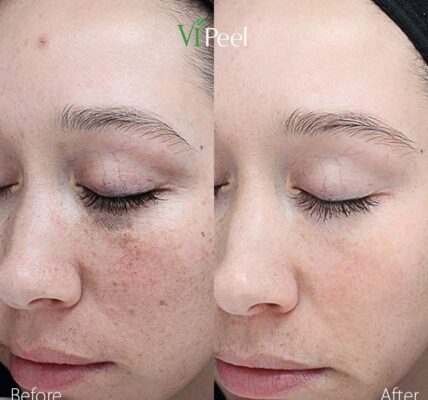Parasited Motel Malaise sun is setting, and the last thing on your mind is what might be lurking in the corners of your room. Unfortunately, for many unsuspecting guests, this scenario can quickly turn into a nightmare when they encounter something far more sinister than a simple lack of amenities—a parasite infestation.
Parasited motel malaise isn’t just an unsettling concept; it’s a real concern that affects both travelers and motel owners alike. As motels strive to provide comfortable accommodations, they often overlook hidden dangers that could lead to serious health risks. In this blog post, we’ll dive deep into the world of parasites found in motels—how to spot them, their impact on your stay, and effective solutions for keeping these unwelcome guests at bay. Buckle up as we unveil the hidden infestations that could turn your peaceful getaway into an unplanned horror story!
Common Parasites Found in Motels and Their Dangers
Motels can unknowingly become havens for various parasites. Bed bugs are among the most notorious, thriving in mattresses and bedding. Their bites can lead to itchy welts and sleepless nights.
Dust mites also pose a threat. These tiny creatures can aggravate allergies and asthma, making stays uncomfortable for sensitive guests.
Fleas might hitch a ride from pets or other travelers. They can infest carpets and upholstery, leading to persistent itching and irritation.
Mold is another hidden menace that often goes unnoticed until it’s too late. It thrives in damp areas, potentially causing respiratory issues for those exposed.
Rodents may invade motel spaces as they seek food sources. Beyond being unsightly, they carry diseases that could endanger both guests and staff alike. Awareness of these common parasites is crucial for maintaining a safe environment in motels.
How to Identify Signs of a Parasite Infestation
Identifying signs of a parasite infestation in motels can be crucial for guest safety and comfort. Start by looking for unusual bites or skin irritations on yourself or your guests. Bedbug bites, for example, often appear in clusters.
Check the bedding and furniture. Dark spots on sheets may indicate blood from crushed bugs. Tiny rust-colored stains could also signal an active bedbug presence.
Listen for strange noises at night; some pests are quite vocal, especially when infesting walls or furniture.
Inspect corners and crevices carefully. Webs might suggest spider infestations while droppings can hint at rodents.
A musty odor is often associated with larger infestations like cockroaches or mold from moisture issues that attract other parasites. Staying vigilant helps catch these red flags early before they escalate into bigger problems.
The Impact of Parasite Infestations on Guests and Business Owners
Parasite infestations create a ripple effect that extends beyond the walls of a motel. For guests, encountering pests can ruin their stay and lead to distressing experiences. Imagine checking in after a long journey, only to find unwelcome roommates like bedbugs or cockroaches.
Such encounters can result in negative reviews and social media backlash. The digital age amplifies every guest’s voice, turning isolated incidents into potential public relations nightmares for business owners.
For motel proprietors, addressing these issues means more than just getting rid of the pests. It involves financial implications as well—repairing reputations often comes at a high cost. Lost bookings and decreased occupancy rates are common consequences when infestations go unchecked.
Additionally, health concerns arise not just for guests but also for staff members who work tirelessly behind the scenes. This ongoing battle against parasites necessitates vigilance and proactive measures to ensure safety and satisfaction within motels.
Solutions for Preventing and Getting Rid of Parasite Infestations in Motels
Preventing and addressing parasite infestations in motels is crucial for maintaining a safe environment. Start by conducting thorough inspections of rooms regularly. Check bedding, carpets, and furniture for signs of unwanted guests.
Implement strict housekeeping protocols. Use high-quality cleaning products that specifically target parasites. Don’t forget to vacuum frequently; it’s an effective way to remove eggs and larvae hidden within fibers.
Educate staff on identifying potential infestations early. Training can empower them to act swiftly if they notice anything unusual.
Seal cracks and crevices where pests may enter the building. This simple measure can significantly reduce the chances of an infestation taking hold.
Consider partnering with pest control professionals who specialize in motel environments. Regular treatments can create a barrier against common parasites, ensuring guest safety year-round without compromising comfort or experience.
Steps for Properly Cleaning and Disinfecting Rooms
Start by removing all linens and towels. Place them in a sealed bag to prevent contamination.
Next, focus on surfaces. Use an EPA-approved disinfectant for countertops, tables, and light switches. Pay extra attention to high-touch areas where germs linger.
Vacuum carpets thoroughly before mopping hard floors with a suitable cleaner. Ensure that your cleaning equipment is sanitized after each use to avoid cross-contamination.
Don’t forget about the bathroom! Scrub toilets, sinks, and shower areas with strong disinfectants. It’s crucial to let these products sit for the recommended time for maximum effectiveness.
Air out rooms when possible. Fresh air helps eliminate odors and reduces airborne pathogens.
Restock amenities like soap and hand sanitizer while ensuring they are sealed properly for guest safety. Regular checks keep everything up to standard and ready for new guests.
Importance of Regular Inspections and Maintenance
Regular inspections and maintenance are vital in combating the issue of parasited motel malaise. These proactive measures help identify potential infestations before they escalate.
Inspectors should pay close attention to common hiding spots such as mattresses, bed frames, and upholstered furniture. Even small signs of pests can indicate a larger problem lurking nearby.
Maintenance routines that include thorough cleaning, sealing cracks, and addressing plumbing issues can significantly reduce the risk of parasite invasions. A well-maintained environment not only deters pests but also promotes guest comfort.
Furthermore, establishing a consistent inspection schedule fosters accountability among staff members. It creates an atmosphere where everyone is vigilant about cleanliness and pest control.
This ongoing commitment enhances your motel’s reputation while keeping guests safe from unwanted surprises during their stay. Regular checks transform a simple task into an essential part of maintaining high standards in hospitality.
Conclusion :Parasited Motel Malaise
The issue of parasite infestations in motels is often overlooked. Yet, it can lead to significant consequences for both guests and business owners.
Awareness is the first step toward prevention. Knowing what to look for can make a huge difference.
Regular inspections are essential. They help catch problems before they escalate into full-blown infestations.
Implementing effective cleaning protocols protects your reputation and enhances guest experience. A safe environment fosters repeat visits and positive reviews.
Addressing these issues head-on not only safeguards health but also ensures the longevity of the motel’s business viability.
Staying proactive creates a welcoming haven instead of a source of distress for weary travelers seeking rest after long journeys.
FAQs
What are the most common parasites found in motels?
Bed bugs, fleas, and cockroaches are among the most frequent culprits. They thrive in environments with high foot traffic and can easily hitch a ride on luggage or clothing.
How can I tell if my motel room has a parasite infestation?
Look for signs such as bites on your skin, blood stains on sheets, small dark spots (fecal matter), or seeing pests themselves. If you notice any of these indicators, it’s essential to report them immediately.
Are parasite infestations harmful to health?
Yes, many parasites pose various health risks. Bed bug bites can lead to allergic reactions and secondary infections. Fleas can transmit diseases like typhus while cockroaches may trigger asthma attacks.
What steps should motel owners take to prevent infestations?
Regular cleaning is crucial. Implementing strict housekeeping protocols and using preventive pest control measures will significantly reduce the risk of an outbreak.
How often should motels conduct inspections for pests?
Routine inspections every few months are recommended alongside thorough checks after each guest’s stay. This proactive approach helps catch potential issues early before they escalate into larger problems.
Can guests do anything if they suspect an infestation during their stay?
Absolutely! Guests should inform management right away so that prompt action can be taken. Reporting concerns not only protects individual guests but also contributes to maintaining overall safety standards at the establishment.
By understanding parasited motel malaise and taking appropriate actions against it, both guests and hotel owners contribute toward creating safer lodging experiences for everyone involved.
FOR FERDUR INFORMATION VISIT:https://proteomics.uk/




